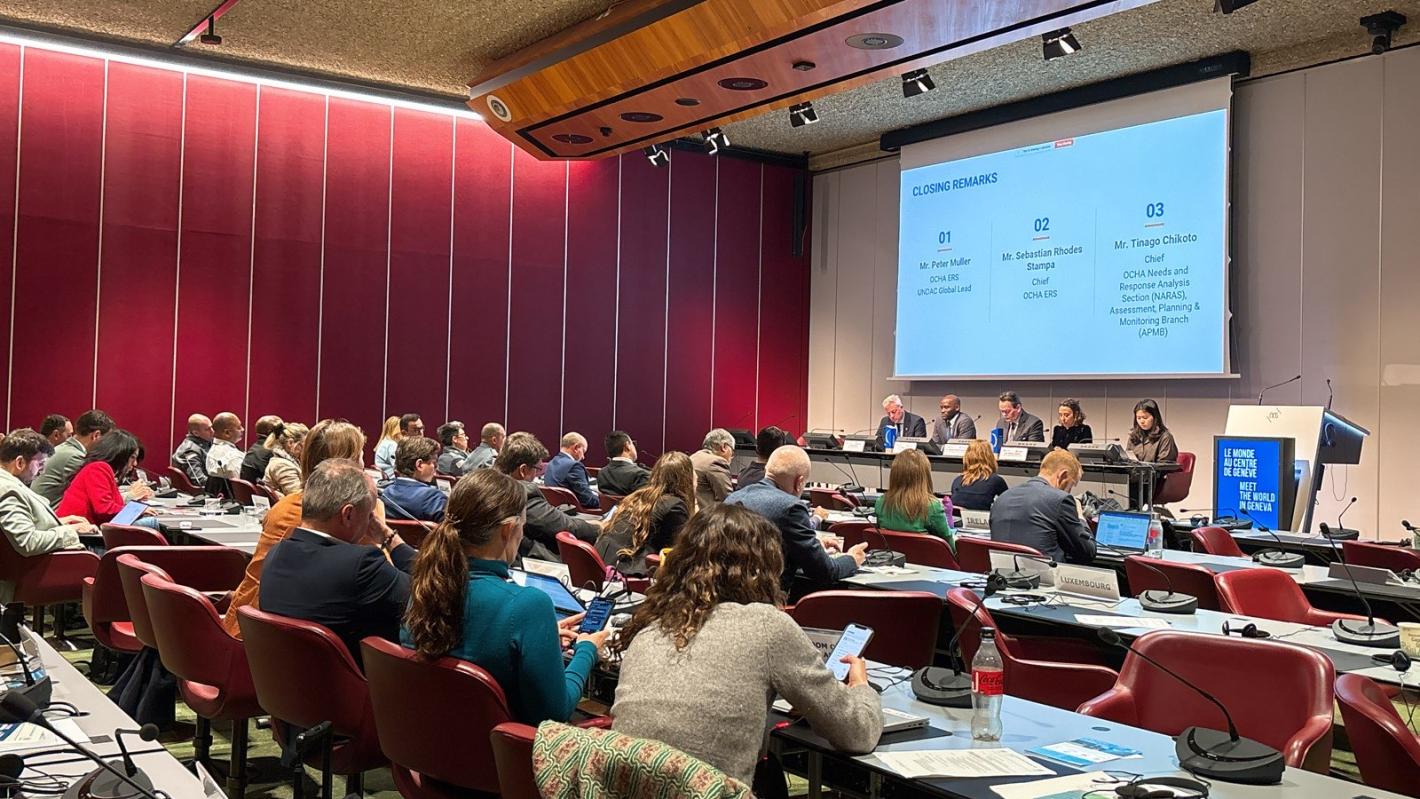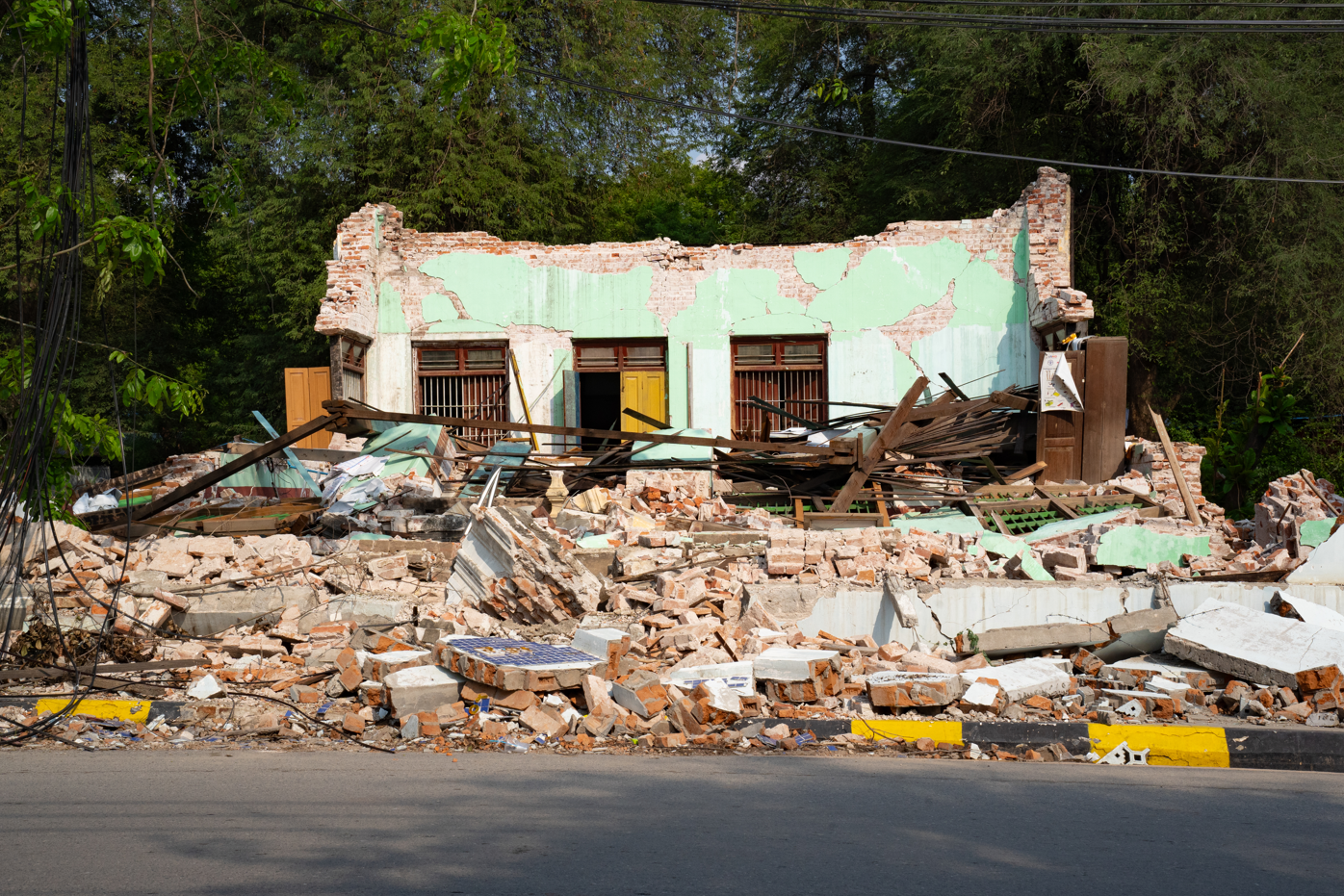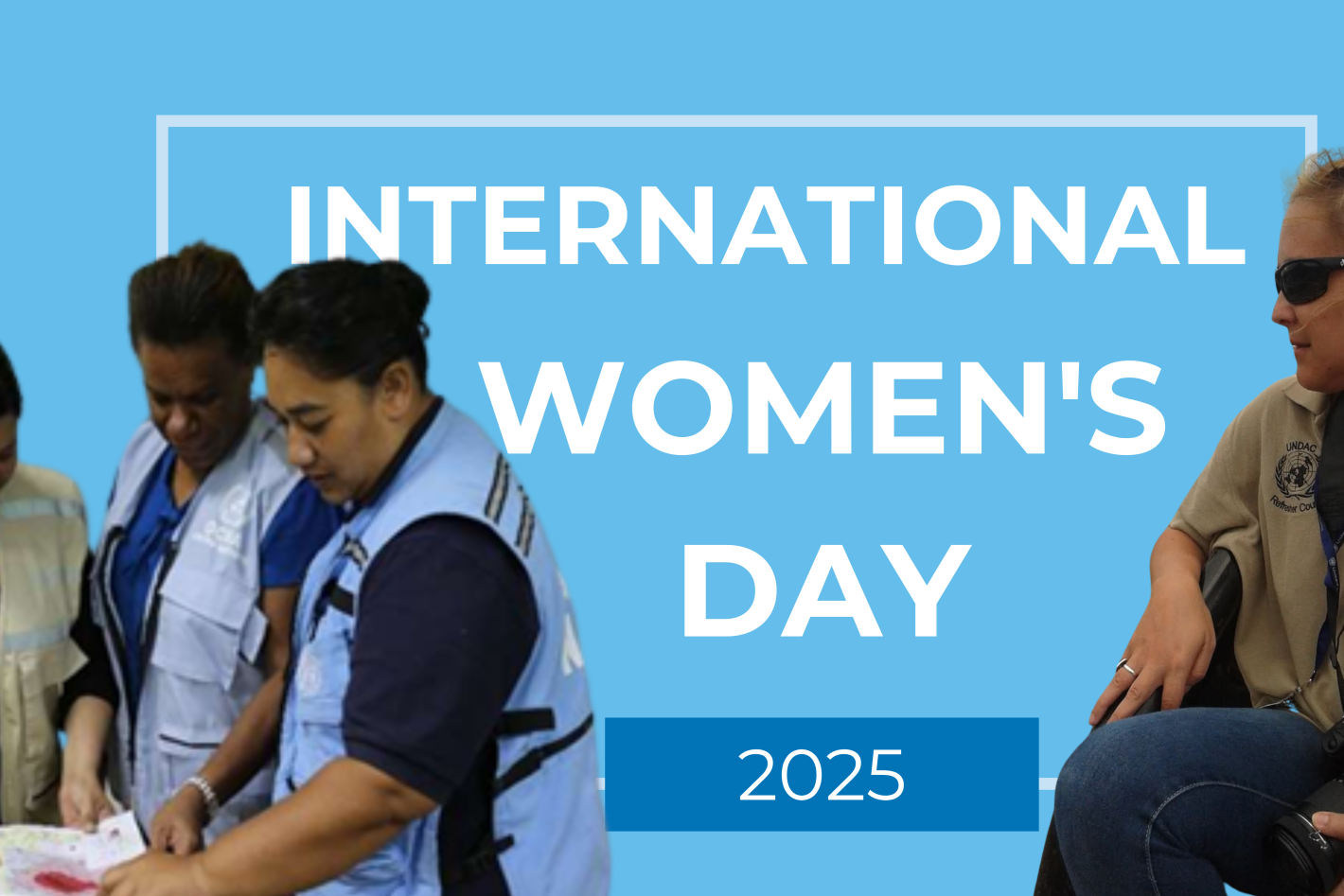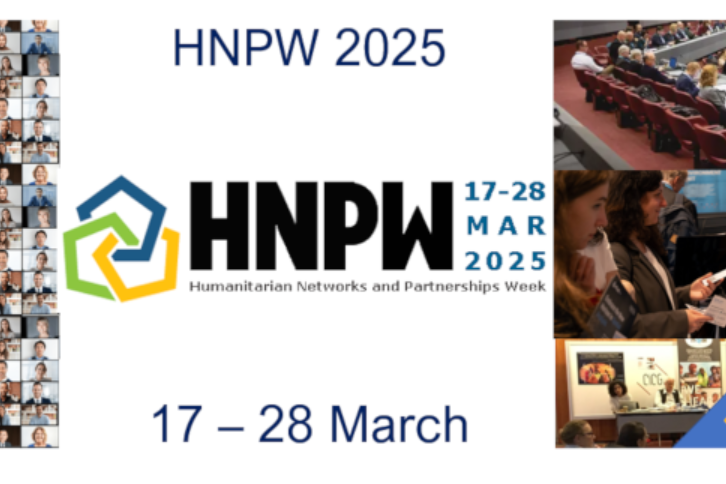During the Humanitarian Networks and Partnerships Weeks (HNPW) 2025, UNDAC hosted three key public sessions that brought together global partners, national focal points, and humanitarian responders to exchange insights, reflect on recent missions, and chart the future of international emergency coordination.
UNDAC 101: From Deployment to Principles
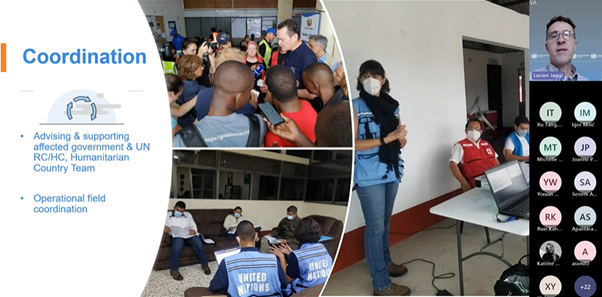
UNDAC 101- This is UNDAC/ Photo: UNDAC
Designed around five key themes, the session explained what UNDAC is, how and when it is activated, how it operates during emergencies, and shared insights from recent deployments and statistics.
Participants learned that UNDAC is a standby mechanism managed by OCHA, made up of trained experts who can be deployed within 24 to 48 hours following a government’s request for international assistance. In the field, UNDAC supports affected countries by coordinating international response efforts, setting up On-Site Operations Coordination Centres (OSOCC), managing information flows, and conducting rapid needs assessments.
The session also highlighted the pathway to becoming an UNDAC member, which involves a competitive nomination and training process. Participants were introduced to the wide network of operational support partners, such as MapAction, who enhance the team’s technical capacity on the ground.
In addition to technical coordination, the session emphasized UNDAC’s commitment to accountability, gender inclusion, and safeguarding principles such as Protection from Sexual Exploitation and Abuse (PSEA).
Advisory Board Meeting 2025: Strengthening the Network in Challenging Times
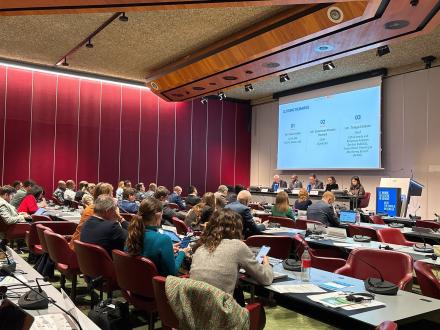
Advisory Board Meeting/Photo: UNDAC
Held at a time of growing operational and financial challenges for the humanitarian system, the UNDAC Advisory Board Meeting 2025 brought together UNDAC national members, operational partners, and Member States to reflect, strategize, and collaborate on the future of international emergency response.
The meeting opened with reflections from OCHA leadership and long-standing operational partners, acknowledging the critical crossroads the humanitarian community faces today. Key sessions reviewed progress under the UNDAC Strategy 2023–2026, recognized achievements from 2024 missions in Yemen, the Caribbean, and Vanuatu, and raised urgent questions about sustaining response capacity in a constrained funding environment.
Core topics included the evolving role of operational partners, the flexible use of mission accounts, and a proposed reshaping of the UNDAC roster to ensure deployment readiness. Presentations from the Vanuatu earthquake and Hurricane Beryl missions highlighted innovation, challenges, and the importance of strong logistics and analysis partnerships.
In the afternoon, participants engaged in breakout discussions, exploring how Member States can support the UNDAC system more flexibly, how to strengthen national focal point engagement, and how to adapt to a shifting humanitarian landscape.
The meeting concluded with a strong sense of commitment: even in times of uncertainty, the UNDAC network remains a vital asset for rapid, principled, and coordinated disaster response.
Learning from the Mission: Vanuatu Earthquake Response
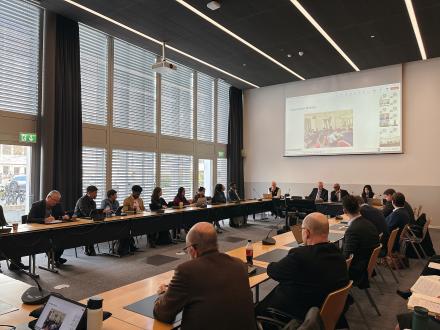
Vanuatu EQ Response session/Photo : UNDAC
The Vanuatu Earthquake Response Session took place on 26 March 2025 at CICG Geneva as part of the Humanitarian Networks and Partnerships Weeks (HNPW) 2025. Held in a hybrid format, the session brought together participants from multiple regions. Speakers included representatives from the Vanuatu Government and deployed OCHA/UNDAC members, who shared key lessons and challenges from the December 2024 earthquake response. The session highlighted the success of the integrated OCHA/UNDAC mission, which demonstrated strong coordination with national authorities and innovative practices such as the use of drones for rapid mapping, damage assessment, and flood risk analysis. The involvement of recently trained Pacific-based environmental experts underscored the importance of regional capacity. Coordinated data sharing and support to the newly established Recovery Operations Centre facilitated a smooth transition from response to recovery, particularly under the new Disaster Recovery and Resilience Act 2024. The mission also reinforced the need for enhanced local capacities, faster deployment, and better integration of technical tools in future responses.
The session highlighted the success of the integrated OCHA/UNDAC mission, which demonstrated strong coordination with national authorities and innovative practices such as the use of drones for rapid mapping, damage assessment, and flood risk analysis.

